Table of Contents
The Essence of Montenegrin Cuisine
Montenegrin cuisine is a celebration of fresh, local, and seasonal ingredients, carefully crafted into dishes that reflect the country’s diverse landscapes and cultural history.
The cornerstone of Montenegrin food is its emphasis on natural ingredients. Whether it’s freshly caught sea, lake or river fish, hand-picked herbs, or farm-grown produce, the flavours are vibrant and unspoiled. Meals are a direct reflection of the season, ensuring every dish is as fresh and authentic as possible.
Regional Diversity
Montenegro’s geography plays a major role in shaping its cuisine. The coastal regions specialise in seafood delicacies like grilled fish, octopus salads, and mussels, all seasoned with locally pressed olive oil. In contrast, the mountainous areas offer hearty, rustic fare – think smoked prosciutto, creamy cheeses, mushrooms and slow-cooked lamb, often accompanied by robust wines or honey-infused desserts.
Lake Skadar’s gastronomy blends Mediterranean flavours with local ingredients, featuring veal, lamb, and fish like carp and eels. Fresh dairy, seasonal fruits, and vegetables are complemented by the region’s renowned wine-growing tradition, offering a rich, authentic culinary experience for travellers to savour.
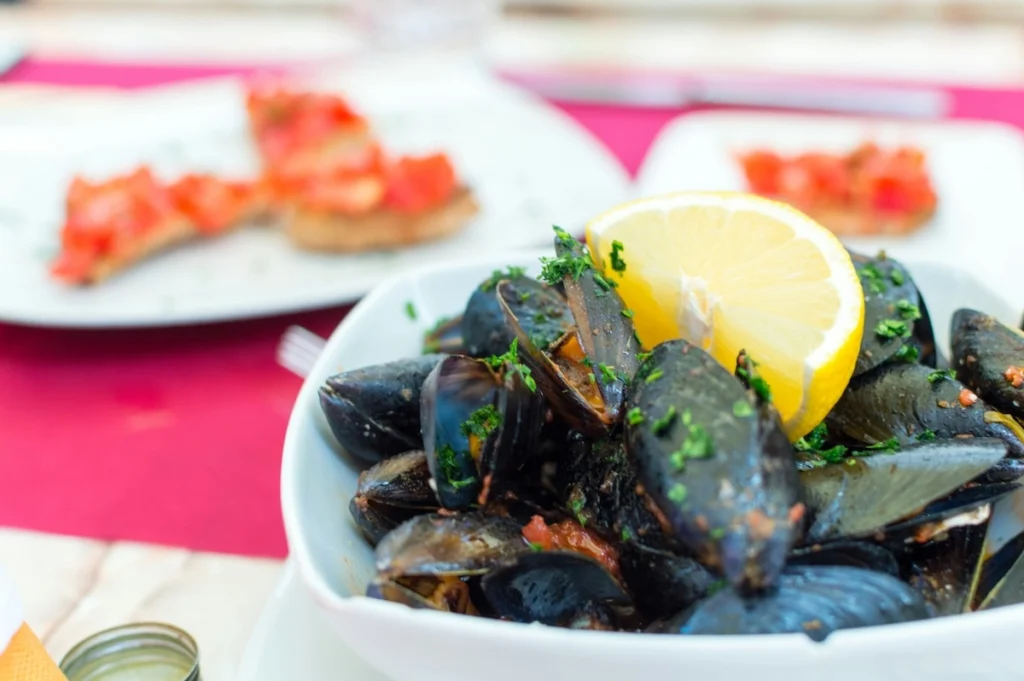
Tradition and History
Montenegrin cuisine tells the story of its past, with influences from Mediterranean, Slavic, and Ottoman cultures. Recipes like kacamak (a traditional cornmeal dish) and njeguski prsut (dry-cured ham) are rooted in history, showcasing the resourcefulness and ingenuity of the locals. Each dish carries the essence of communal living, where cooking was a shared craft, and meals were a time to gather and celebrate.
In Montenegro, food is more than nourishment – it’s an expression of identity, tradition, and harmony with the land.
A Culinary Crossroads: Montenegro’s Rich Heritage
Montenegro’s culinary scene is a vibrant blend of Mediterranean and Balkan flavours, shaped by centuries of cultural exchanges and its stunning geography. Nestled between the Adriatic Sea, fertile plains, and rugged mountain ranges, the country offers a diverse array of ingredients and cooking styles.
The coastal regions are influenced by Mediterranean traditions, with an emphasis on fresh seafood, olive oil, and herbs. Inland, the cuisine takes on a heartier character, featuring meats, dairy products, and slow-cooked dishes rooted in Balkan traditions. This contrast makes Montenegrin cuisine uniquely diverse and deeply satisfying.
Historical influences from Venetian traders, Ottoman rule, and Slavic neighbours have left a lasting imprint, creating a culinary tapestry that showcases both sophistication and rustic charm. Today, Montenegrin food reflects its people’s connection to nature and a commitment to preserving their gastronomic heritage, making it a perfect for slow food enthusiasts.
Whether it’s savouring Njeguski prsut (dry-cured ham) in the mountains or enjoying freshly caught mussels in Boka Bay, Montenegrin cuisine invites travellers to experience its history, culture, and natural bounty – one dish at a time.
Food, Nature, and Sustainability: A Harmonious Connection
In Montenegro, food is not just nourishment, it is a profound expression of the country’s relationship with nature and its commitment to sustainability. The ingredients that define Montenegrin cuisine are often sourced from the surrounding landscape, from the crystal-clear waters of the Adriatic to the fertile plains and pristine mountain pastures.
Traditional farming and fishing methods are deeply rooted in respect for the environment, ensuring that local communities can thrive while preserving the natural resources that sustain them.
Small-scale producers, like olive farmers, beekeepers, and vintners, prioritise quality over quantity, embracing a zero-waste philosophy and valuing every part of what the land and sea provide. This connection is particularly evident in the country’s emphasis on slow food. Whether enjoying artisanal cheese made in mountain katuns, honey harvested from wildflowers, or wine crafted from centuries-old vines, travellers are invited to experience food as an extension of the land’s rich biodiversity.
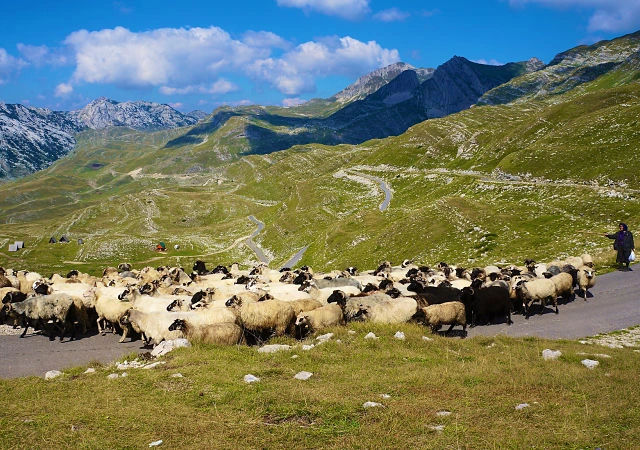
By celebrating traditional practices and fostering partnerships with local producers, Montenegro is preserving its culinary heritage while paving the way for a sustainable future. For visitors, this is more than just a meal – it’s an invitation to engage with nature, support local communities, and savour the true taste of Montenegro.
3E Travel’s Dedication to Slow Food and Traditional Dining Experiences
At 3E Travel, the journey is as much about discovering Montenegro’s flavours as it is about exploring its stunning landscapes. Dedicated to the principles of slow food, 3E Travel embraces the art of mindful eating, celebrating the connection between tradition, sustainability, and the land.
By collaborating with local producers, 3E Travel offers travellers the chance to savour authentic Montenegrin cuisine in its purest form. These partnerships not only highlight traditional dining experiences but also support small communities and sustainable practices that honour the environment.

Every meal is carefully curated to tell a story of ancient farming methods, inherited recipes, and a lifestyle that values quality over speed. Whether enjoying freshly caught mussels in the Boka Bay, or homemade bread from a rural mill, 3E Travel ensures that food becomes an integral part of the adventure.
Through these dining experiences, guests are not only treated to incredible flavours but also encouraged to connect with Montenegro’s cultural heritage and embrace a slower, more meaningful way of travelling.
Culinary Highlights with 3E Travel’s Partners
Eko Katun Goles: Authentic Mountain Cuisine
Nestled at 1600 meters above sea level, Eko Katun Goles offers a truly authentic taste of Montenegro’s mountain cuisine. In this eco-friendly shepherd village, visitors can indulge in hearty, traditional dishes prepared by the katun hostess, including lamb cooked in milk, baked lamb, cicvara, and kacamak.
The food is made from locally sourced ingredients, such as homemade cheese, sour milk, cornbread, and fresh dairy products from their own farm. The katun also serves natural blueberry and elderberry juices, offering a perfect taste of the mountain’s fresh, organic produce. The experience at Goles is a true celebration of sustainability, with all food prepared in a natural environment that reflects the area’s dedication to preserving its traditions and natural resources.
Ulja Ramds: Guardians of Montenegro’s Olive Oil Tradition
Nestled in the natural beauty of Bar, between the ancient olive groves of Dzidzarin, some over a thousand years old, and the historic Old Town of Bar, Uljara Metovic is a family-run olive mill with a legacy of excellence.
Operating under the brand Zlatne Kapi, they have preserved the art of olive oil production for generations, combining traditional methods with modern techniques. Utilising pristine local water sources and renowned equipment from Italy’s Pieralisi and Mori Tem, they produce olive oil of exceptional quality, celebrated for its rich flavour and authenticity. Their dedication to tradition and sustainability aligns seamlessly with 3E Travel’s values, offering travellers a true taste of Montenegro’s heritage.
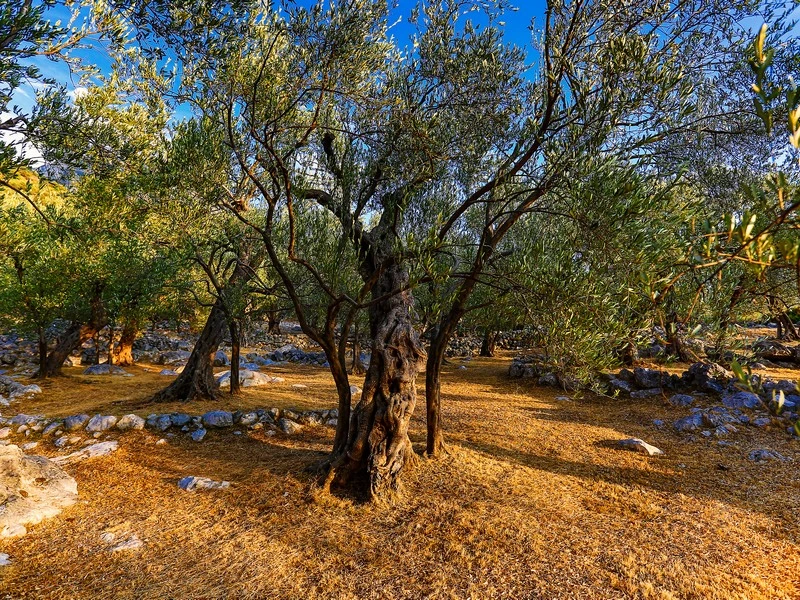
Jablan Winery: A Taste of Tradition in Rijeka Crnojevica
Tucked away in the picturesque village of Rvasi, near the scenic Rijeka Crnojevica and Skadar Lake, Jablan Winery is a gem of Montenegro’s wine region. Housed in an ancestral family home, this rural estate beautifully blends centuries of tradition with modern touches. Visitors can savour exquisite local wines, crafted using time-honoured recipes with a contemporary flair, and indulge in farm-to-table dining experiences that celebrate the region’s culinary heritage.
In the summer, tastings take on an enchanting ambience at the estate’s guvno, where guests can enjoy captivating stories from the Jablan family. Partnering with 3E Travel, Jablan Winery offers travellers unforgettable brunches, meals, and wine tastings that immerse them in Montenegro’s rich flavours and culture.

Boka SeaFood: Fresh Flavours from the Heart of Boka Bay
Located on the shores of the stunning Boka Bay in Kotor, Boka SeaFood Oyster and Mussel Farm is a family-run restaurant that offers a true taste of the Adriatic. Known for its commitment to freshness and sustainability, this charming spot serves oysters and mussels harvested directly from its own farm.
Guests can enjoy a variety of seafood delights, from grilled fish to exquisite seafood platters, perfectly paired with local wines. With breathtaking views of the bay and a warm, family-friendly atmosphere, dining here is an unforgettable experience that blends Montenegro’s coastal beauty with its culinary traditions. Partnering with 3E Travel, Boka SeaFood offers travellers an authentic and sustainable seafood adventure.
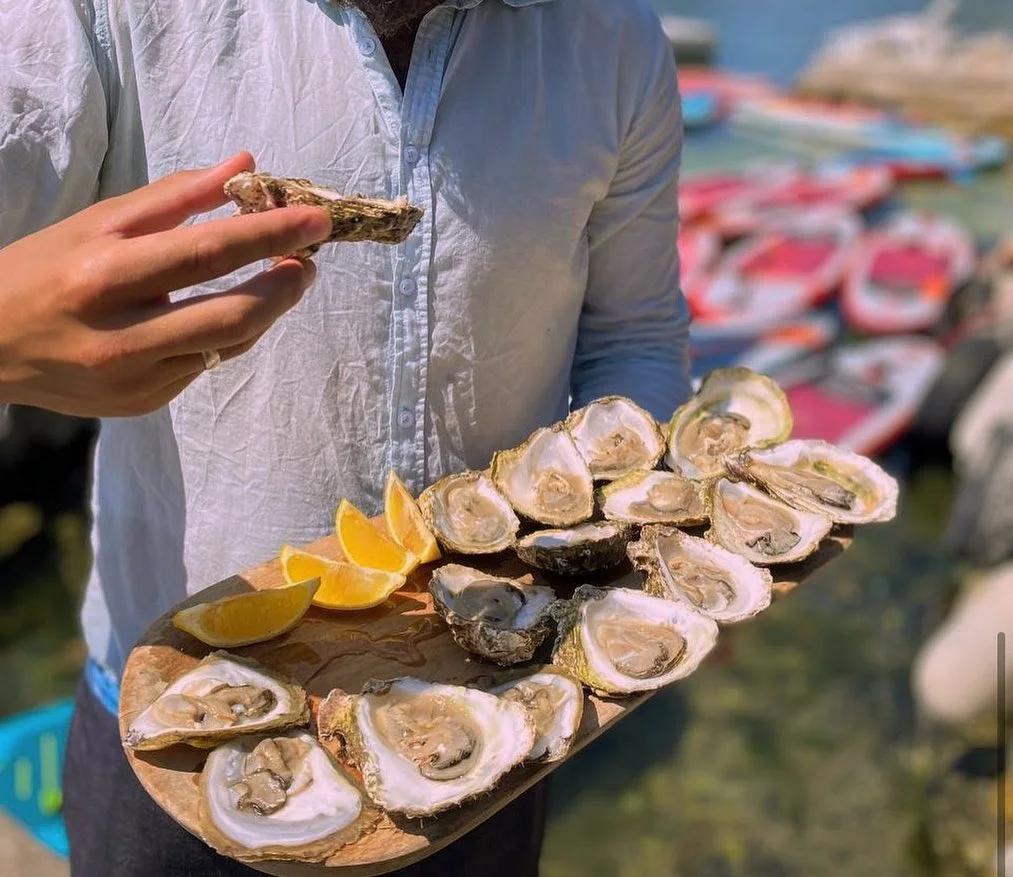
Njeguška Pršuta: A Taste of Montenegrin Tradition
In the heart of the scenic Njeguši village, the art of crafting Njeguška pršuta, Montenegro’s geographically protected prosciutto, thrives as a cherished family tradition. Made from pork or beef and carefully dried in the mountain air or gently smoked, this delicacy embodies the essence of Montenegrin culinary heritage.
With their own facilities dedicated to the time-honoured process, the family Stanisic warmly welcomes 3E Travel guests to experience the flavours and stories behind this iconic product. Visiting Njeguši is more than just a taste, it’s a journey into the soul of Montenegro’s food culture.
Pceline Kreacije: The Sweet Essence of Montenegro
Pceline Kreacije is a family business from the Lustica Peninsula, known for its exceptional honey products, particularly the unique Maginja honey. This monofloral honey, derived from the Mediterranean plant Arbutus Unedo, boasts a distinctive bittersweet aroma and remarkable nutritional qualities. Renowned for its health benefits, Maginja honey is celebrated for its antioxidant properties and its ability to aid in digestion, circulation, and respiratory health.
Alongside their honey, Pceline Kreacije also produces eco-friendly beeswax wraps, offering a sustainable alternative to plastic. With a focus on organic, raw, and natural products, Pceline Kreacije is a perfect example of Montenegro’s commitment to sustainability and tradition.
Pcelarstvo Sestovic: Pure Organic Honey from Montenegro
Pcelarstvo Sestovic is a family-run business dedicated to producing certified organic honey from the pristine landscapes of Montenegro. They offer a range of honey varieties, including mountain, lake, and meadow honey, each reflecting the unique flora of the region.
Their products also include honey in the comb and propolis drops, all harvested with care and respect for nature. With a commitment to purity and sustainability, Pcelarstvo Sestovic provides honey that captures the essence of Montenegro’s untouched environment, making it a perfect addition to 3E Travel’s culinary experiences.
Etno Vodenica Cirovic: A Taste of Tradition from Pljevlja
The Cirovic family, nestled in the village of Odzak near Pljevlja, has preserved the charm of traditional village life for over a century. Their 100-year-old watermill is the heart of their household, where Slobodan, a passionate miller, keeps the time-honoured craft alive.
Rajka, a skilled cook, grows a variety of vegetables and produces delicious delicacies from buckwheat and hulled wheat flour, including her famous buckwheat pie. She also makes cheese and clotted cream, with her semi-hard cheese receiving special recognition.
Their daughter Bojana, a university graduate, is dedicated to promoting the values of the family mill and encouraging the younger generation to appreciate the village’s heritage. With a commitment to preserving tradition, Etno Vodenica Cirovic brings a taste of Montenegro’s rural roots to 3E Travel’s visitors.
Skadar Lake Family Resort & Restaurant Sindjon: A True Taste of Local Hospitality
Located in the tranquil setting of Rijeka Crnojevica, Skadar Lake Family Resort and its Restaurant Sindjon offer an unforgettable dining experience where warmth and hospitality shine. Guests rave about the homemade food, with ingredients sourced directly from their own garden and fresh fish caught from the lake. The bread is freshly baked, the meats are prepared with care, and the locally made wine pairs perfectly with the stunning views of the surrounding nature.
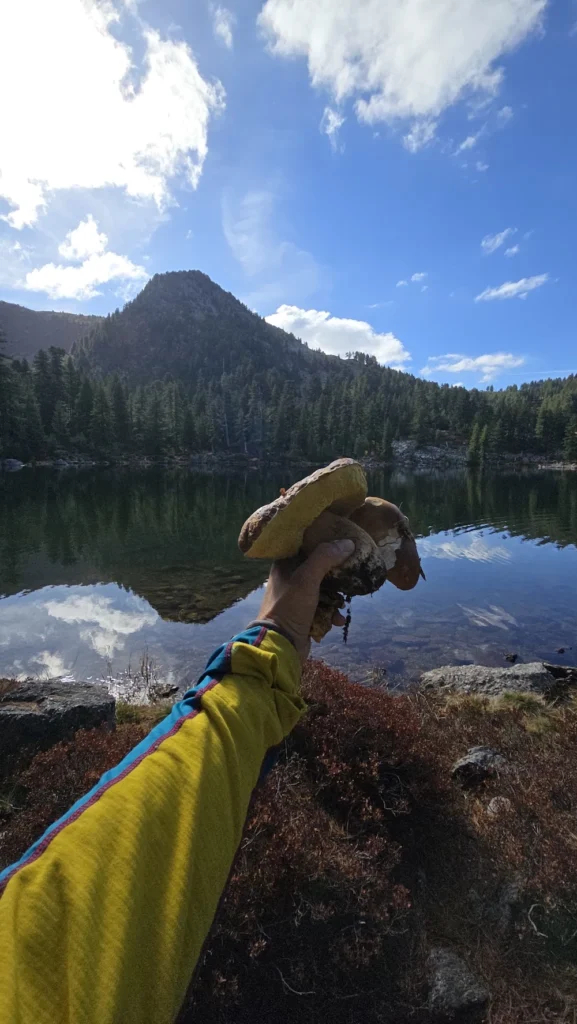
The owners, Duka and Lilly, ensure every guest feels at home, providing a welcoming atmosphere that feels like family. Whether you’re relaxing in their comfortable rooms or enjoying a meal after a boat tour, the resort offers a peaceful retreat with a genuine taste of Montenegro’s rural life.
Our team at 3E Travel is committed to promoting zero waste and eco-friendly practices throughout its food tourism experiences. By focusing on sustainable practices, we encourage the use of local, seasonal ingredients, minimise food waste, and support small-scale producers who prioritise environmental stewardship.
This approach not only preserves Montenegro’s rich culinary traditions but also supports local communities by showcasing their sustainable practices. Through our tours, we educate travellers on the importance of respecting food, nature, and local cultures, fostering a deeper appreciation for the environment and the people who make these authentic experiences possible.
Join us for a culinary adventure that nourishes both body and soul. Make your enquiry here.
Our gift to you – Fungi Porcini Soup Recipe
Ingredients needed:
- 1 onion,
- 1 leek,
- two to three cloves of garlic to taste,
- 3 to 4 potatoes,
- 3 carrots,
- 4-5 tablespoons of olive oil,
- salt and pepper to taste,
- 1500 ml of water,
- 70 ml of white wine,
- 150 ml of sour cream or neutral cream to taste
Instructions:
Clean the porcini mushrooms and cut them into leaves (you can boil them for two to three minutes), then sauté the onion, leek and garlic in oil, add the carrot, then the porcini mushrooms and simmer on low heat, gradually adding water. Add potatoes cut into smaller cubes, and continue to sauté and add water.
After 15 minutes, add wine and boil.
Then remove and mix, blend, then return to the stove, add sour cream or neutral cream and water if necessary (in case it’s too thick).
Serve with pieces of previously toasted or toasted bread.
